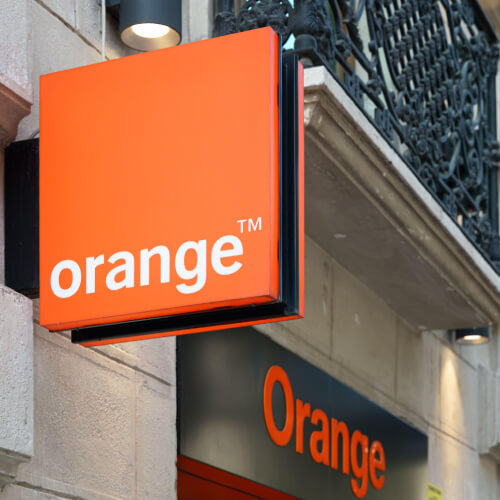
Also in today's EMEA regional roundup: ETNO on the EU Data Act; Nokia lands 400G upgrade gig in Azerbaijan; IoT use cases a-go-go.
An improved performance in its European markets helped Orange record 1% year-on-year growth in overall revenues in the third quarter, to €10.82 billion ($10.66 billion). EBITDAal (earnings before interest, tax, depreciation and amortization, after leases) inched up 0.2% to €3.58 billion ($3.52 billion), though Orange expects EBITDAaL growth to accelerate in the fourth quarter thanks to the reversal of various underlying effects. European growth reached 3.2% in the quarter, driven in part by retail service revenues that were 1.9% higher year-on-year. Poland was the outstanding performer, seeing revenues rise by 8.4%. In its Africa & Middle East territory, Orange saw revenue growth slowing in the third quarter, though revenues still climbed by 4.2% year-on-year, to €1.78 billion ($1.75 billion). The operator's outlook for 2022 was confirmed. Figure 1:
 (Source: l_martinez/Alamy Stock Photo)
(Source: l_martinez/Alamy Stock Photo)The European Telecommunications Network Operators' Association (ETNO) has published a new study examining the likely effects of the EU's Data Act on the telecom industry once it becomes law. The way ETNO sees it, the Data Act is a "step in the right direction" but needs a few tweaks: additional clarifications are needed, it says, on who is responsible for the switching process between different cloud providers; operators should be compensated for handing over data to governments for use by the public authorities (such as during the COVID-19 epidemic); and clearer definitions of what constitutes electronic communications service (ECS) data of the sort generated by IoT devices should be put in place.
Nokia is to upgrade the core IP and optical DWDM network of Azerbaijan's Delta Telecom, providing it with a 400G-capable architecture. Nokia's 7750 service router platforms, powered by the FP4 chipset, will be doing much of the heavy lifting.
Sweden's Enea claims in a new report that its video-streaming optimization software could reduce a typical mobile operator's overall network energy consumption by a tenth, producing annual savings of $10 million.
UK altnet CityFibre has appointed Kelly Group as its "preferred supplier" for customer connections nationwide. This move will create more than 1,000 skilled jobs at Kelly Group, including up to 920 engineers. CityFibre has just broken ground on its latest rollout, in the northeastern town of Stockton-on-Tees (though construction there is being carried out by Ociusnet).
Deutsche Telekom has teamed up with software firm Syfit to bring IoT technology to a highly specialized branch of the construction industry. They have supplied PERI, an international manufacturer of formwork (which serves as a surround for poured concrete that will form the wall of a building), with a system that allows data related to the formwork to be recorded and sent to PERI without the need for a cumbersome "man-machine" interface. Figure 2:
 Teamwork makes the formwork.
Teamwork makes the formwork.
(Source: Deutsche Telekom)Telefónica Tech has landed the contract to provide global IoT connectivity for Livall's range of cyclists' smart helmets, which until now have relied mainly on Bluetooth technology tethered to a smartphone. The introduction of IoT connectivity could, for example, provide bike-sharing companies and food delivery companies with constant, real-time communication with the helmet (and its wearer).
Volodymyr Lutchenko, chief technology officer of Kyivstar, the largest mobile operator in Ukraine, has been named as Telco Executive of the Year at the Network X telecom trade show. Lutchenko took over the technical direction of Kyivstar in October 2021. Under his leadership, a set of measures has been implemented to protect Kyivstar's infrastructure from the ravages of war. Already in 2022, his team have completed the construction of 439 new LTE basestations, upgraded 6,200 existing basestations and provided 1,280 bomb shelters throughout Ukraine. Heroic stuff indeed.
— Paul Rainford, Assistant Editor, Europe, Light Reading
Read more about:
EuropeAbout the Author(s)
You May Also Like












